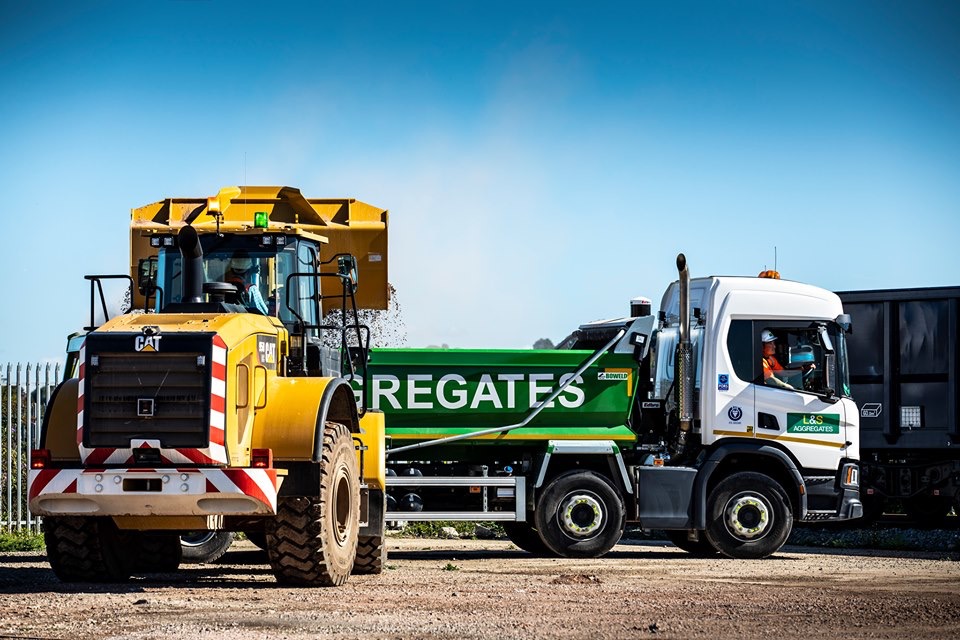Alan Howe - A customer of ours at Same Day Clearance Waterlooville has passed away. A regular tipping customer for 20 years Alan was a real character.

Recycled aggregate holds significant importance in UK construction due to its numerous benefits, ranging from environmental sustainability to economic efficiency and resource conservation. As the construction industry grapples with the challenges of waste management, resource depletion, and carbon emissions, the integration of recycled aggregate into construction practices has emerged as a key strategy for addressing these issues and promoting a more sustainable built environment.
One of the primary benefits of using recycled aggregate in UK construction is its contribution to reducing the environmental impact of construction activities. By diverting construction and demolition waste from landfills, recycled aggregate helps alleviate the burden on limited landfill space and mitigates the associated environmental risks, such as groundwater contamination and greenhouse gas emissions. This aligns with the UK’s commitment to waste reduction and circular economy principles, as outlined in government policies and regulations aimed at promoting sustainable construction practices.
Furthermore, the use of recycled aggregate in construction helps conserve natural resources by reducing the demand for virgin aggregates, such as gravel, sand, and crushed rock, which are finite and non-renewable. By substituting these primary materials with recycled aggregate derived from demolished buildings, roads, and infrastructure, construction projects can significantly decrease their ecological footprint and lessen their dependence on extraction activities that often entail habitat destruction, landscape alteration, and energy consumption.
In addition to its environmental benefits, recycled aggregate offers economic advantages for UK construction projects. By providing a cost-effective alternative to virgin aggregates, recycled aggregate helps reduce material procurement costs and overall project expenses, thereby enhancing the competitiveness and profitability of construction endeavours. Moreover, the availability of recycled aggregate from local sources can reduce transportation distances and associated carbon emissions, further optimising project logistics and environmental performance.
The versatility and performance of recycled aggregate make it suitable for various construction applications, including road construction, pavement base layers, concrete production, and drainage systems. Extensive research and testing have demonstrated that recycled aggregate can meet or exceed the technical specifications and performance requirements of conventional aggregates, ensuring that its use does not compromise structural integrity or durability.
However, the widespread adoption of recycled aggregate in UK construction is not without its challenges. One notable challenge is the need for consistent quality control and assurance to ensure that recycled aggregates meet regulatory standards and project specifications. This requires robust testing protocols, material characterization, and adherence to best practices in recycling and processing techniques to minimise variability and ensure the reliability of recycled aggregate products.
Moreover, overcoming barriers related to market acceptance, perceived performance, and industry resistance requires concerted efforts from stakeholders across the construction value chain, including policymakers, developers, contractors, suppliers, and end-users. By fostering collaboration, innovation, and knowledge-sharing, the UK construction industry can unlock the full potential of recycled aggregate and accelerate the transition towards a more sustainable and resilient built environment.
In conclusion, recycled aggregate plays a pivotal role in UK construction by offering environmental, economic, and technical advantages that contribute to sustainable development objectives. By embracing recycled aggregate as a viable and valuable resource, the construction industry can reduce waste generation, conserve natural resources, mitigate environmental impacts, and promote a circular economy approach to materials management. Through continued investment, innovation, and collaboration, the UK can leverage the potential of recycled aggregate to build greener, smarter, and more resilient infrastructure for future generations.
Company Bio
Find out why L&S is no ordinary waste management company.
Go >
L&S In The Community
Learn more about our community projects.
Go >
Meet The Team
An introduction to the L&S management.
Go >












